Today in Seminary, we talked about Doctrine and Covenants 50 with its famous injunction that those who teach and receive by the Spirit are both edified. As the students and I reviewed the section, the Lord declaring His mighty hand kept standing out to me.
Basically, the Lord admonished the Saint to be discerning, but to leave all judgment to the Lord, because the wicked “shall be detected and shall be cut off, either in life or in death, even as I will.”
I’ve seen the same theme while reading the Book of Mormon at the prophet’s request.
And it shall come to pass that the Lord God shall commence his work among all nations, kindreds, tongues, and people, to bring about the restoration of his people upon the earth.
And with righteousness shall the Lord God judge the poor, and reprove with equity for the meek of the earth. And he shall smite the earth with the rod of his mouth; and with the breath of his lips shall he slay the wicked.
For the time speedily cometh that the Lord God shall cause a great division among the people, and the wicked will he destroy; and he will spare his people, yea, even if it so be that he must destroy the wicked by fire.
What does that look like?
While I’ve been tremendously injured by others, I can’t recall asking for or expecting swift, exacting judgment to destroy them. However, end-time scriptures warn of horrific circumstances—some of which people around the globe are suffering today.
Many assume that once the members of The Church of Jesus Christ of Latter-day Saints escaped to the Salt Lake Valley and began establishing settlements throughout the West that their persecutions ended. Unfortunately, that is not so. Outlaws roamed the Wild West and the Saints confronted them in varying circumstances.
Niels Petersen’s experience is a story of leaving judgment to the Lord and reminds me that I should do the same.
Outlaws Threaten Northern Arizona Pioneers
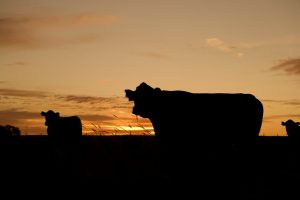 In the latter years of the 1800s, there came into conflict not only sheepmen and cattlemen, but cattlemen and farmers. A large cattle company known as the Hashknife Cattle Company, because its brand was in the form of a hashknife, had established itself throughout most of Northern Arizona. The company’s cowboys had taken it upon themselves to keep the land a cattle country. To keep it so, they became outlaws and threatened, intimidated, and at times used physical force to remove sheepmen and the farmers from the land .
In the latter years of the 1800s, there came into conflict not only sheepmen and cattlemen, but cattlemen and farmers. A large cattle company known as the Hashknife Cattle Company, because its brand was in the form of a hashknife, had established itself throughout most of Northern Arizona. The company’s cowboys had taken it upon themselves to keep the land a cattle country. To keep it so, they became outlaws and threatened, intimidated, and at times used physical force to remove sheepmen and the farmers from the land .
The following story told by Joseph and James Petersen, sons of Niels Petersen, describes one of these conflicts.
In the winter of 1886-87, Niels Petersen lived in Pinedale, Arizona. The outlaw element was proving a menace to the Mormon settlers in that area, but Petersen was a man of nerve and he was determined to hold his own and preserve his range rights.
He had been approached in various ways by the outlaws. He had been invited to join a gang of horse thieves in a game of stealing and selling horses. Refusing this, he was visited by an Indian who gave him a fabulous price for his Winchester. Future events showed that this was for the purpose of disarming him.
Soon he discovered that his horses were disappearing from the range. This caused him to keep a close lookout for his stock, and he was in the saddle much of the time.
The first company to settle in these parts had struggled with dry-farming and a little bunch of cattle and a few horses for eight seasons, during which time the Apaches had gone on the warpath twice. But never at any time had my mother showed any signs of fear or anxiety. Now it was different.
She showed plainly that she was apprehensive of trouble. She feared that lives would be taken as evidenced by the content of her petitions to the Lord whenever she led in family prayer. They were in substance this: “Father, protect Thy saints from the lawless element that is in our midst, and, above all, grant that the blood of none of them may be upon the hands of our people, but that the wicked may slay the wicked.”
Sometime previous to this, one of the newcomers approached my father in a roundabout way, but father gleaned that they intended to move stock, especially horses, from one part of the country to another to sell them. He said, “Petersen, you are ideally located here to handle that kind of stuff and if you care to do so, we will let you have it at a price where you can make some money.”
Father told them he did not think he cared to handle that kind of stuff. The stranger said, “Why not? We will give you a bill of sale on everything we let you have and that will protect you. And moreover, we will see that nothing of yours is molested.”
Father told him that it was not going to work. “Don’t you think it won’t work,” the fellow replied. “We have enough boys in these hills to wipe out all the Mormons here, inside of thirty days, if they see fit to interfere with our business.” He seemed to think that was all the opposition that they would have, and continued, “If you want to stay in this country, you better get in.”
Riding one day near the ranch then occupied by a cowman named Paine, Niels Petersen was attacked by Paine and given a severe beating with the butt of a shot-loaded cow whip. Paine wanted to know why he was riding so much lately and demanded that he stay at home. This Petersen refused to do on the grounds that he was simply living up to his legal rights of caring for his stock.
Mr. Paine administered the whipping with this shot-loaded cow whip and was heard to say later, “No matter how hard or how often I struck that blankety-blank Dutch, all I could get out of him was, “That’s all right, Mr. Paine! That’s all right, Mr. Paine!” This, the listeners interpreted to mean that Petersen would exact full pay for each indignity.
All of the men in the country expected Petersen to kill Paine. Mr. C.E. Cooley expressed a general sentiment when he said that Paine would meet his fate now, that Petersen was one man who couldn’t be treated that way.
Petersen borrowed a gun and for a week, his wife observed that he would go out every morning and be gone all day. It was also observed that Paine was nowhere to be seen.
Saturday night when Petersen was bathing, his wife heard groans. Going in to investigate, she found that his back was covered with awful cuts and his underwear had stuck, pulling flesh and scab away with it.
There are two versions of what happened next. One was that Petersen hunted up his stake president, Jesse N. Smith, and talked with him. The other was President Smith, hearing that Petersen was bent on killing Paine went to Petersen. Whichever is right, Petersen met with Smith who told him that if he would give up his plan to kill Paine, he would promise him that he would soon see the man brought to a violent end by his own acts. Petersen thought the matter over and decided to give up his vengeance and let Paine go his own way.
Shortly after meeting with the stake president, Petersen was made the bishop of the Pinedale Ward, and almost on the heels of this, John Paine was killed in a gun battle at the Middleton Ranch—one of the big battles of the Pleasant Valley Outlaws.
Leaving the Outlaws to the Lord
Longer version of Niels Petersen’s chat with President Jesse N. Smith:
President Jesse N. Smith told his version of the story to his son Joseph W. Smith (Delisa’s second great-grandfather) as follows:
President Jesse N. Smith tried to dissuade Niels Petersen. He pleaded with him. He quoted scriptures, but Petersen’s mind was made up. He was not to be changed.
No man living could whip him as though he were a dog and live. He would follow out his intention.
These two good men spent most of the time talking. Along toward morning, Jesse N. Smith was moved to speak in the name of the Lord and to make a promise that if Petersen would go back home, put his gun away, and leave things to the Lord, that He would take judgment upon this man.
For the first time since the quirting, his heart was softened and Petersen accepted the counsel of his stake president.
Soon afterward, not only Paine but others of the Hashknife outfit were dead. Three were shot and killed in a matter of seconds early one morning in Holbrook by Commodore Ownes, then sheriff of Navajo County. Lloyd Henning of Holbrook told this story.
“These cowboys who had become outlaws in the depredations were holed up in a shanty along the railroad tracks in Holbrook. Commodore Owens, a young man with a soft voice and a distinguished look, an easterner who dressed immaculately and who wore his hair down to his shoulders, was a completely fearless man. Most of his shooting was done by his rifle, a Winchester, and mostly he shot from the hip which gave him speed and freedom of movement. He was an effective shot.
To read more of Delisa’s articles, click here.
Commodore Owens took his trusty Winchester and went to this shanty. He stepped up to the door, called the name of the man for whom he had a warrant of arrest and ordered him in the name of the law to come out with his hands up.
Immediately after his order, Commodore Owens stepped to one side as a bullet came through the door. Owens sent his own bullet back through the door, killing the man inside. Almost immediately a man appeared at the window with a gun. Owens got him with one shot.
Another man who had slipped out the back door came around the corner of the house with his gun, but he never got a chance to fire it for he was dropped in his tracks by Owen’s bullet. When all was quiet, the sheriff stepped inside and found his first bullet had killed the man inside the door.”
Shortly after this, two of the Hashknife men were found hanging from the branch of a tree in the Bloody Basin area. They had been caught cattle rustling.
There were hard rough times in those early days, but a guiding hand still ruled.
About Delisa Hargrove
I am a member of The Church of Jesus Christ of Latter-day Saints. I have moved 64 times and have not tired of experiencing this beautiful earth! I love the people, languages, histories/anthropologies, & especially religious cultures of the world. My life long passion is the study & searching out of religious symbolism, specifically related to ancient & modern temples. My husband Anthony and I love our bulldog Stig, adventures, traveling, movies, motorcycling, and time with friends and family.

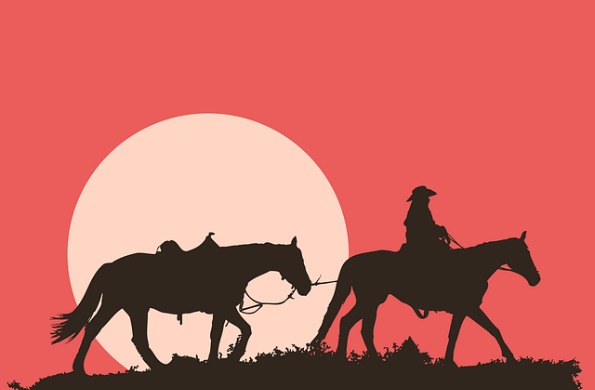
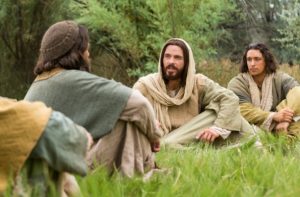
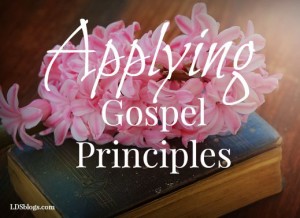

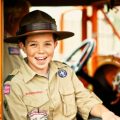



Whoa cool story!
Right?! Thanks, Delisa, for sharing!
Those pioneers are amazing folk!!!